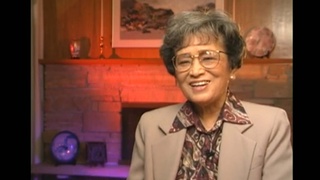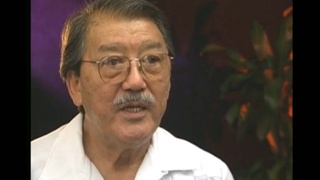Interviews
Recalling President Carter’s signing of the Commission bill
I was standing right behind the right shoulder of President Carter. He had a little three-by-five inch card in his hand, and I just glanced down. I thought he would have the whole card filled with statements. He only had about two or three words written there. But you know he spoke for quite a while and what he said was he was very—so he seemed to know the history of Japanese Americans and camp pretty well. I was rather surprised at the extent of the information that he had.
Date: July 1-2, 1998
Location: California, US
Interviewer: Mitchell Maki, Darcie Iki
Contributed by: Watase Media Arts Center, Japanese American National Museum










